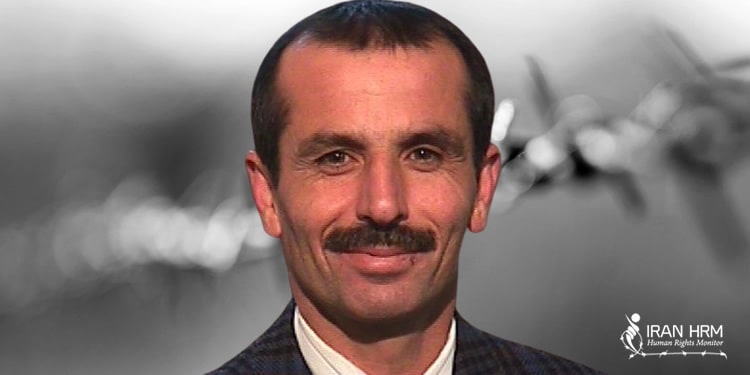Political prisoner Gholam Hossein Kalbi has been denied urgent medical treatment after he suffered severe burns to his neck and back from scalding hot water.
He has suffered severe burns to his neck and back in a bath of scalding water. But prison officials only gave him a burn ointment and refused to transfer him to hospital.
The water system of Sheiban Prison is broken and usually does not have hot water. But due to system failure, sometimes jets of boiling water suddenly come from the shower nozzles.
An informed source said, “The problems with the hot water in ward 5 of Sheiban prison are endless. Most of the time, there is no hot water for bathing. Sometimes suddenly boiling water and intense steam come out of the pipes and fall on the prisoners’ head; The same thing happened to Gholamhossein and his neck and back burned. But they did not take him to the hospital and only gave him a burn ointment.”
Gholam Hossein Kalbi, 61, is one of Iran’s longest-serving political prisoners who is marking 20 years in Iran’s prison system without a single day of leave.
Despite suffering from various medical conditions and needing specialised medical tests, Mr. Kalbi has been denied access to adequate medical care, which in his case is outside prison.
His ears have been infected for a long time. As a result, he has lost hearing in one of his ears. His teeth have been crumbling due to torture and food deprivation for years in prison.
Furlough, temporary leave typically granted to prisoners in Iran for a variety of familial, holiday, and medical reasons, is routinely denied to political prisoners as a form of additional punishment.
International and Iranian law require prison authorities to provide adequate medical care. Iran’s state prison organization regulations state that, if necessary, detainees must be transferred to a hospital outside the prison facility. The UN Standard Minimum Rules for the Treatment of Prisoners require authorities to transfer all those held needing specialist medical treatment to specialized institutions, including civilian hospitals.
Political prisoner Gholam Hossein Kalbi had been previously jailed for six years in 1980s for supporting the People’s Mojahedin Organization of Iran (PMOI/MEK).
He was arrested again on January 8, 2001, in the city of Dezful, southwest of the country.
He was held there for 14 months in an IRGC detention center in Ahvaz following his arrest and was interrogated under torture.
In 2002, the Branch 6 of the Revolutionary Court sentenced him to death on charges of ‘moharebeh’ for his connection with the PMOI.
Gholam Hossein Kalbi denied the allegations, saying his confessions were made under pressure. His death sentence was upheld on appeal by the Revolutionary Court of Tehran Province. Eventually, however, his sentence was reduced to life imprisonment.
According to a member of the prisoner’s family; Gholam Hossein Kalbi did not have the right to access a lawyer of his choosing, and the court appointed him a public defender.











